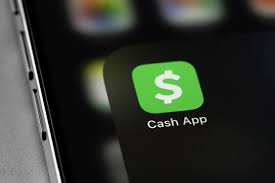Cash App Sees Surge in Direct Deposits as Part of Expansion Strategy

Cash App's Expansion into Banking Services: A Comprehensive Overview
Cash App, a popular mobile payment service, is reportedly advancing its efforts to offer comprehensive banking services, marking a significant shift from its primary role as a peer-to-peer payment platform. This article delves into Cash App's growing number of direct deposits, its strategic expansion into banking services, and the challenges it faces in this competitive landscape.
Cash App's Direct Deposit Growth
In December, Cash App witnessed a 25% year-over-year increase in users opting for direct deposits into their accounts, reaching a milestone of 2.5 million users. This growth is pivotal as users who choose direct deposit are more inclined to utilize the app's other banking services. This metric highlights the growing trust and reliance users are placing on Cash App as more than just a payment tool.
Targeting a Broader Audience
Cash App's expansion strategy aims to broaden its customer base beyond the underbanked individuals it has traditionally served. The company now targets individuals earning up to $150,000 annually, a demographic that could significantly enhance its user base. With 57 million active users, this strategy represents a concerted effort to penetrate a more affluent market segment.
Owen Jennings, Block Executive Officer and Business Lead, emphasized the company's long-term objective: "Our long-term goal is to be the primary provider of banking services to the vast majority of Americans." To achieve this, Cash App must evolve from a simple peer-to-peer app to a comprehensive suite of banking services, gaining reputation and brand recognition in the process.
Marketing and Regulatory Approvals
Cash App's recent initiatives include a marketing campaign launched in January across 15 cities, aimed at promoting its enhanced banking services. Additionally, the app received approval from the Federal Deposit Insurance Corporation (FDIC) to issue short-term consumer loans through Block's Square Financial Services. This approval is a crucial step in Cash App's transition into a more traditional banking role.
Challenges in the Competitive FinTech Landscape
Despite its progress, Cash App faces several challenges in attracting users to its banking services. Customers may harbor uncertainties about relying on the app for all their banking needs. Furthermore, competition from FinTech rivals such as Chime Financial, Robinhood Markets, and PayPal's Venmo adds pressure for Cash App to differentiate its offerings.
Another hurdle is a settlement with the Consumer Financial Protection Bureau, which criticized Block's investigations into unauthorized transactions on Cash App as "woefully incomplete." Addressing these concerns is critical for maintaining user trust and expanding its banking services.
Strategic Shifts and Future Prospects
The approval for Square Financial Services to directly issue consumer loans through Cash App Borrow marks a strategic shift. Previously, the company's focus was on providing business loans and savings accounts to Square sellers, with consumer loans facilitated through an external banking partner. This move signals a commitment to establishing Cash App as a standalone banking entity.
Conclusion
Cash App's journey towards becoming a full-fledged banking service provider is marked by significant milestones, such as the increase in direct deposit users and strategic regulatory approvals. However, it must navigate challenges in customer trust and competition within the FinTech industry. As Cash App continues to innovate and expand its services, its ability to adapt and address these challenges will determine its success in transforming from a payment app to a comprehensive banking solution.










































